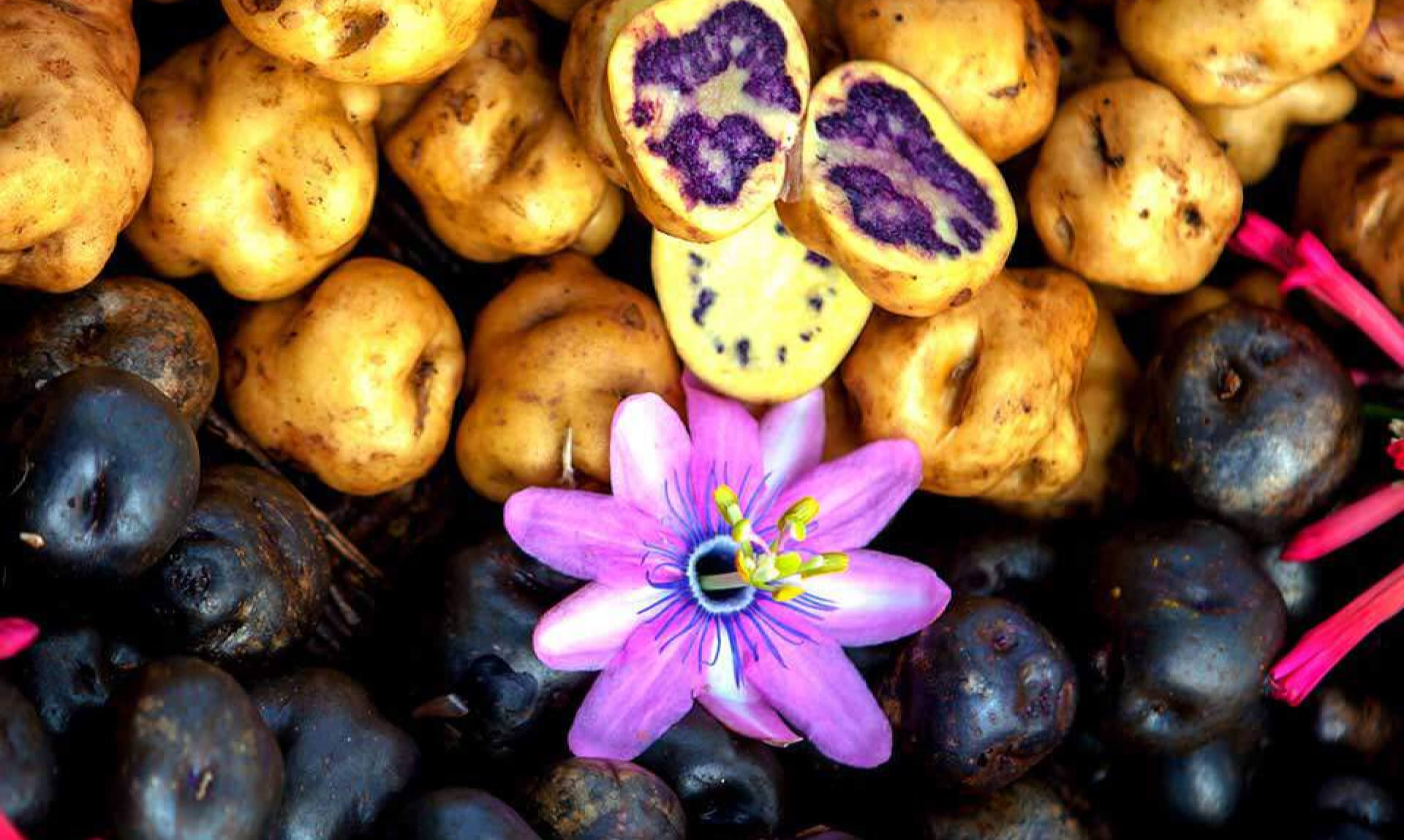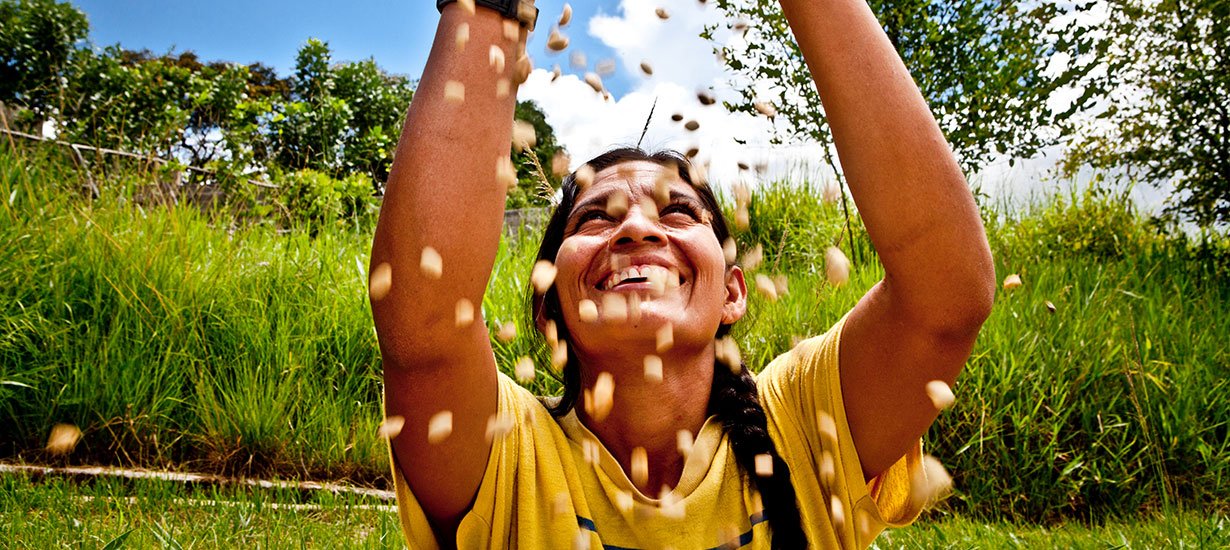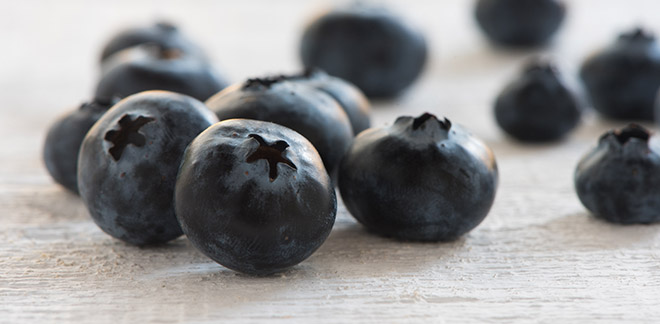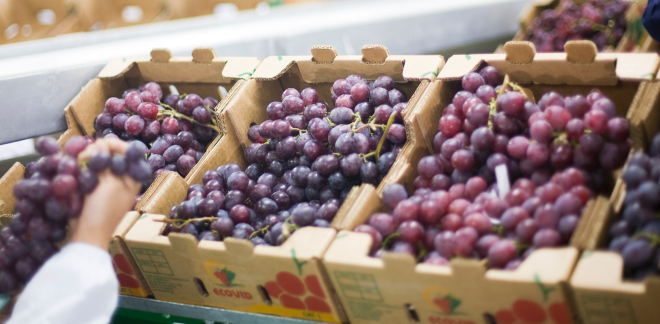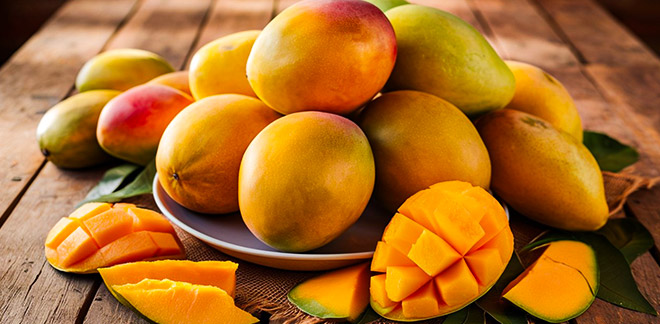Peruvian coffee: Discover the origins, varieties, and unique flavors of this specialty export
Síguenos en:Google News
Coffee is one of the most popular beverages worldwide, and Peruvian coffee is rapidly gaining recognition and expanding its presence in the global market.
Peruvian coffee is globally renowned for its exceptional quality, diversity, and origin, making it one of the country's top agro-export products. In fact, coffee exports reached an impressive USD 132 million between January and February 2024, marking a 61% increase compared to the USD 79.8 million recorded during the same period in 2023.
Peruvian coffee is celebrated for its distinctive flavors and aromas, a testament to the richness of its origins, the diversity of its climates, and the dedication of its producers. Join us on a journey to explore these exceptional specialty coffees.
ORIGIN
Coffee was introduced to Peru in the 18th century, around 1740 to 1760, by Spanish colonizers who brought it from the Caribbean. While the exact date remains uncertain, the first coffee plants are believed to have been cultivated in Moyobamba, located in the San Martin region, as well as in Chanchamayo (Junin), Cusco, and Huanuco.
From these regions, coffee cultivation spread across Peru's Amazon and highlands, adapting seamlessly to the country's varied altitudes and microclimates. And the rest, as they say, is history!
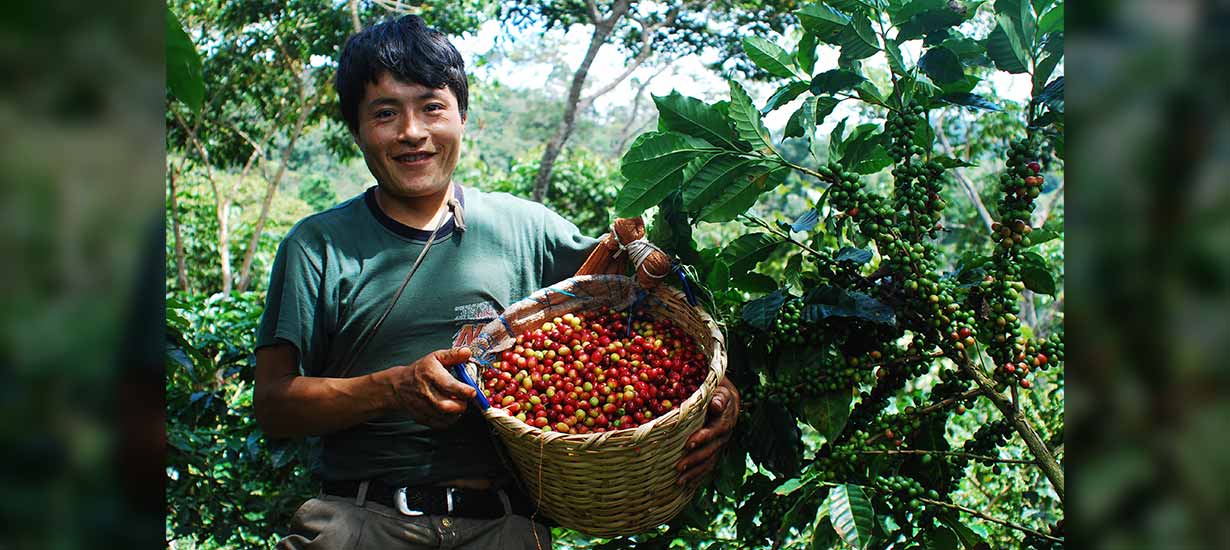 Source: PROMPERÚ
Source: PROMPERÚ
VARIETIES
According to the National Coffee Board, Peru primarily produces Arabica coffee, including notable varieties such as Typica, Bourbon, Caturra, Catimor, and Geisha. Let’s take a closer look at these key varieties:
Typica: One of the oldest and most traditional coffee varieties in Peru, though its cultivation has declined due to its vulnerability to pests. Known for its balanced flavors, it offers a slightly sweet profile with delicate, smooth notes.
Bourbon: This variety produces medium-bodied coffees with flavor notes of tropical fruits, nuts, and caramel. Its final profile can vary significantly depending on the region where it is cultivated.
Caturra: Known for its natural sweetness and distinct acidity, this variety creates a well-balanced beverage.
Geisha: Renowned for its aromatic complexity, Geisha coffee is prized for its floral notes and has earned a strong international reputation.
The significance of Peruvian coffee goes beyond its varieties; it also extends to specialty coffees, which are distinguished by their exceptional quality in the cup. These coffees are free from defects, offering a flawless drinking experience.
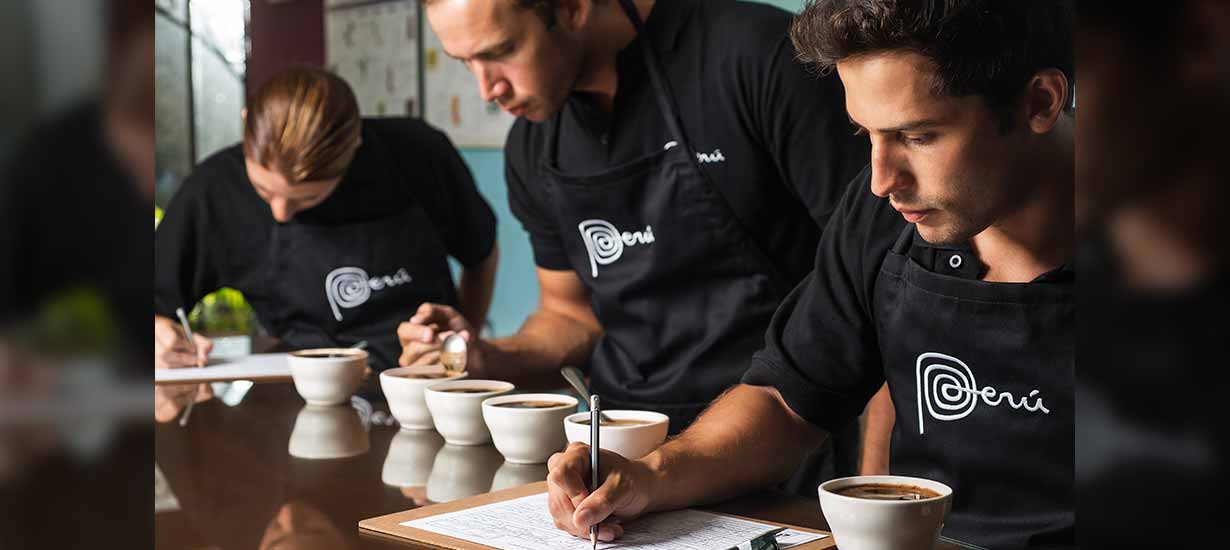 Source: Karina Mendoza / PROMPERÚ
Source: Karina Mendoza / PROMPERÚ
SPECIALTY COFFEES
The term specialty coffee refers to the highest quality coffee available, often sourced from a single origin or farm. It was first coined in 1974 by Erna Knutsen in an issue of the Tea & Coffee Trade Journal.
Objectively, specialty coffee is defined as coffee that scores 80 or more on a 100-point scale, assessed using a methodology developed by the Specialty Coffee Association (SCA). The SCA is a non-profit organization that represents all coffee professionals, from producers to baristas.
This methodology, refined in the 2000s, requires evaluation by certified experts known as Q-Graders, accredited by the Coffee Quality Institute (CQI). These professionals assess the coffee based on factors such as fragrance and aroma, flavor, acidity, body, sweetness, balance, aftertaste, and uniformity of the cup. (Source: International Coffee Organization-ICO, Perfect Daily Grind)
In addition to exceptional quality, specialty coffees are closely linked to broader values such as sustainability, traceability, and transparency. These principles are essential throughout the specialty coffee value chain, ensuring not only the highest quality but also a positive impact on the people involved in its production, trade, and the environment.
Sustainability in specialty coffee covers economic, social, and environmental aspects. Economically, it ensures fair income for producers; socially, it promotes decent working conditions and community development; and environmentally, it includes practices like shade cultivation and biodiversity conservation.
Traceability enables coffee to be traced from its origin to the final consumer, identifying the specific farm or region. This process ensures that quality and sustainability standards are met, while also strengthening the connection between producers and consumers by showcasing the unique stories behind each coffee.
Finally, transparency ensures open communication about prices, trade practices, and production processes. It fosters trust among all stakeholders, eliminates unfair intermediaries, and promotes an equitable distribution of benefits throughout the value chain.
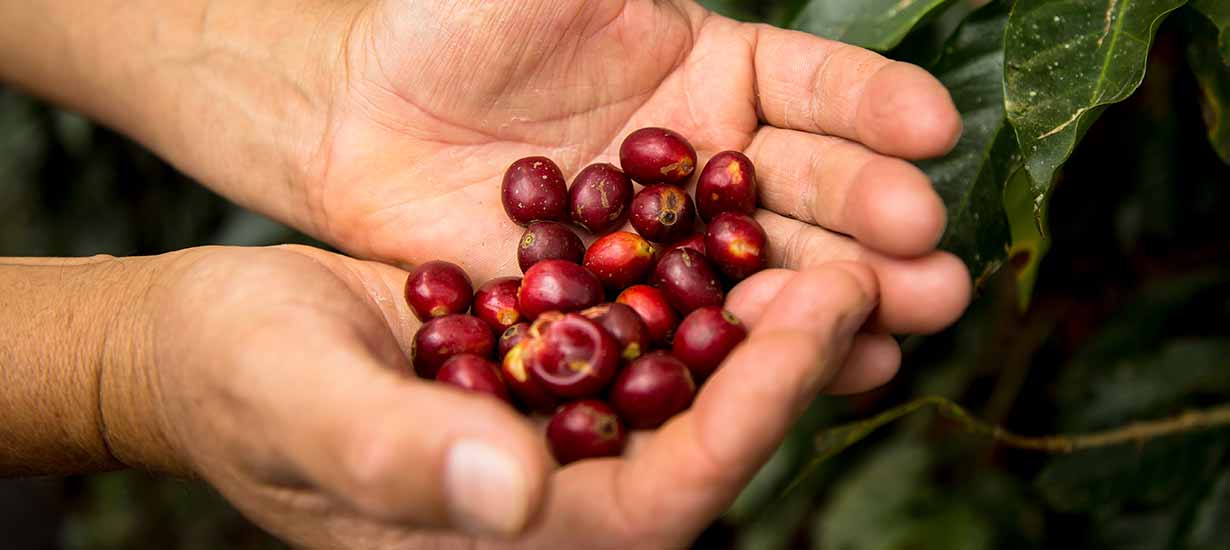 Source: Karina Mendoza / PROMPERÚ
Source: Karina Mendoza / PROMPERÚ
The growing interest and consumption of specialty coffees in recent years present a great opportunity to promote Peruvian coffee. It allows us to highlight the exceptional quality of the varieties found in our country, as well as the dedication and hard work of Peruvian coffee producers.

